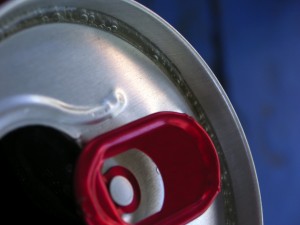 Advocates for taxing unhealthy food as a way of fighting the obesity epidemic may want to reconsider their views, at least in regards to taxing soda.
Advocates for taxing unhealthy food as a way of fighting the obesity epidemic may want to reconsider their views, at least in regards to taxing soda.
According to a new Northwestern University study, the main problem lies in the fact that obese people tend to drink diet soda anyway.
“After doing the analysis, it really turns out to be the case that obese people like diet soda so much more than regular soda that you can do whatever you want to the price,” said Ketan Patel, a fourth-year doctoral student in economics at Northwestern. “You’re not going to get that much change in obese people’s weight because they already drink diet soda.”
Patel was initially concerned that maybe people with bad eating habits are not deterred by slight price increases. However, this concern became moot once considering the diet soda factor.
This isn’t the first study to question the effectiveness of taxing soda. In early 2026, a study put together by the RAND Corporation found that the tax levels currently in place are not enough to curb consumption in children. It’s worth noting that the study does not denounce the strategy altogether, just that the current tax levels are not enough.
“If the goal is to noticeably reduce soda consumption among children, then it would have to be a very substantial tax,” said Roland Sturm, the study’s lead author and a senior economist at RAND, a nonprofit research organization.
Yet another study from last year, this time from Duke-National University of Singapore (NUS) Graduate Medical School, found the possible effects of a soda tax to be minimal. The researchers found that a tax that raises soda prices by 20 percent only reduces the average daily consumption by 6.9 calories.
Again, this study doesn’t necessarily denounce the strategy altogether. It’s just saying that the tax is not enough.
“Although small, given the rising trend in obesity rates, especially among youth, any strategy that shows even modest weight loss should be considered,” said Eric Finkelstein, PhD, associate professor of health services at Duke-NUS.
(via: Science Daily)
